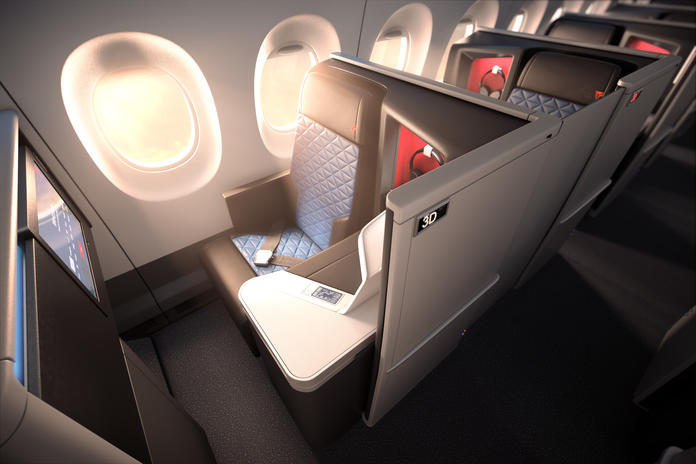
The idea of unbundling services in the pointy end of the plane is not a new one, though it also has not spread too broadly. Yet. That may change later this year as Delta Air Lines teased the concept during its Q2 2024 earnings call.
Responding to a query from Jamie Baker of JP Morgan, Delta’s President Glen Hauenstein all but confirmed that something is likely to happen on that front, though he declined to offer specifics:
I think you’re gonna have to come to investor day to hear more about that. We’ve talked conceptually about that. I think we’ll be giving you more details as we [get closer], but we’re not ready to talk about the details of those plans moving forward. I think investor Day this year should be very exciting.
The business class cabin remains Delta’s most profitable, despite a commonly shared view that Premium Economy is where airlines make the most money. Incrementally increasing that premium profit could be great news for the carrier. Or changes could push passengers to competitors, where they don’t feel pinched. But the idea seems to be working elsewhere in the industry.
A basic business concept dates back to at least 2017, when Emirates President Sir Tim Clark suggested that his airline was considering the offering. As he explained then, advance seat assignments, meals, lounge access and checked baggage allowance would be separated from the base fare. Even the amenity kit or onboard pajamas might be offered as separate items for purchase rather than as part of the package. It would be a fully unbundled product. The industry has not gone quite that far, but it is moving that direction.
Several airlines now sell premium cabin products with an incremental fee for seat assignments. Swiss started charging for the “throne seat” back in 2017. British Airways has long charged as well. Norse Atlantic charges for seats and meals in its premium cabin. ZipAir’s premium product similarly charges for those optional services. Finnair also offers a Business Light fare product.
In an era where airlines are better than ever – though not necessarily great – at upselling, drip pricing, and ancillary marketing, we should expect to see more of this in the industry.
The push for increased premium revenue comes as the carrier reported a drop in profit for the quarter YoY (though it still made over a billion dollars), against what it sees as a glut of domestic economy capacity. Some of that capacity is pulling back, particularly in the U/LCC market. Delta is not pulling back, however, and the company believes it still offers a better value for travelers, even with higher fares. As CEO Ed Bastian explained:
Value in this industry, for many years, was defined as having the lowest fare in the market. That’s has changed dramatically. The experience economy that we’ve seen has taken hold, has driven the high demand that we are seeing and continue to see. And even the third quarter revenue “disappointment” is still going to be a record set of revenues that we’re going to see, rewarding those that are providing real value meaning a better quality experience, better value for money in terms of the product we’re offering and reliability.
Bastian’s comments on the overall value of a premium product are also part of the company’s hedge against the U/LCCs pushing into more generous offerings, such as Frontier’s UpFront Plus offering. Some of that may be more hopeful than real, but Delta believes consumers will consider the overall operation and breadth of options more than just cost and schedule, assuming the bit of extra comfort is similar enough. There’s also an implication that consumers consider value – not just fare – even if choosing a regular economy class seat.
Complimentary connectivity continues to come online
Separately, Delta reiterated its timeline for delivering the updated inflight internet experience on board. The carrier anticipates the bulk of its transatlantic fleet to be fitted with the Viasat-powered solution by the end of the summer, with the stragglers finishing by the end of the year. The regional jet and 717 fleet will follow “over the next 12-18 months.” That still puts the carrier as complete around the end of 2025, even if installs did not start as early as promised in the original announcement.
A favor to ask while you're here...
Did you enjoy the content? Or learn something useful? Or generally just think this is the type of story you'd like to see more of? Consider supporting the site through a donation (any amount helps). It helps keep me independent and avoiding the credit card schlock.

Leave a Reply